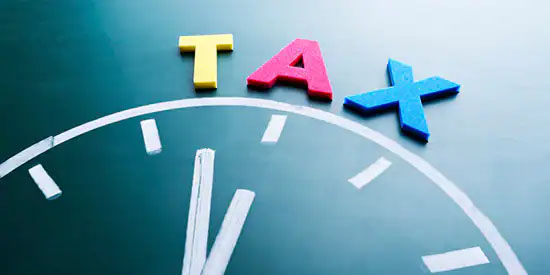Tips to get the most from this year’s tax return
Media release
With the end of the financial year just around the corner, a Deakin University financial planning expert has some timely advice on how to get the most out of this year’s return, including how to claim COVID-19 work from home deductions.
"Many people dread the thought of preparing for tax time but putting in a little effort now can reap rewards," said Deakin Business School’s financial planning scholar Gurbinder Gill.
"Dig out the receipts and logbooks to make sure you can justify claiming expenses and go through the information in your MyGov account diligently. While we expect all information to flow correctly into the MyGov portal, there are bound to be some errors such income being over or understated and inaccurate interest or dividend income.
"Being prepared will help take the pain out of the tax return process."
While you can’t claim the cost of raising children or your gym membership, Mr Gill provides the following tips to ensure you get the most out of what you can claim:
- Lodge your return on time to avoid penalties – if you are doing it on your own the deadline is 1 November 2021 and if using a registered tax agent and depending on the complexity, extensions are possible up to 15 May 2022.
- Only claim work-related expenses and where personal and work use overlap, only claim the portion used for work.
- For those people who worked from home due to COVID-related restrictions, the short cut method is to claim 80 cents for each hour of work that encompasses all eligible tax deductions for working from home. Alternatively, you claim 52 cents for each hour and then claim other deductions.
- Other work-related expenses you might be able to claim include:
- uniforms and protective items, shoes etc that are required for work
- professional association and union fees can be claimed along with other subscriptions related to your job
- education fees where it is relevant to your current job and or a new job (this area is a little grey, but it can be justified provided you end up in this job in the short term)
- tools and equipment such as sunscreen and sunshades if you work outside, computers and software if you have a home office
- GST on a new vehicle. If it is used partially for personal use, only claim the portion that is for business use
- Don’t forget to include interest, dividends, and other investment related expenses such as if you have borrowed to invest.
- Gifts and donations to charity can be claimed provided they are classified as deductible gift recipients.
- If you use a tax agent for your return their fee is deductible.
Mr Gill said it was also not too late to boost superannuation pre-tax contributions.
“If you can, optimise your pre-tax (concessional) contributions into superannuation by topping up to the $25,000 cap,” he said.
“If your super balance is below $500,000 you can make catch up contributions for five years from 1 July 2019 and claim a tax deduction. This is over and above your $25,000 per annum pre-tax limit.
“There are also post-tax contribution options such as claiming an 18 per cent tax offset on up to $3,000 of a super contribution for your spouse, this works out to $540. Or if your total income is equal to or less than $39,837, you make a $1,000 contribution to super and receive $500 as a co-contribution from the government.
“If you have not made a personal after-tax contribution for this financial year you can add up to $100,000 to your super.”
Share this story

